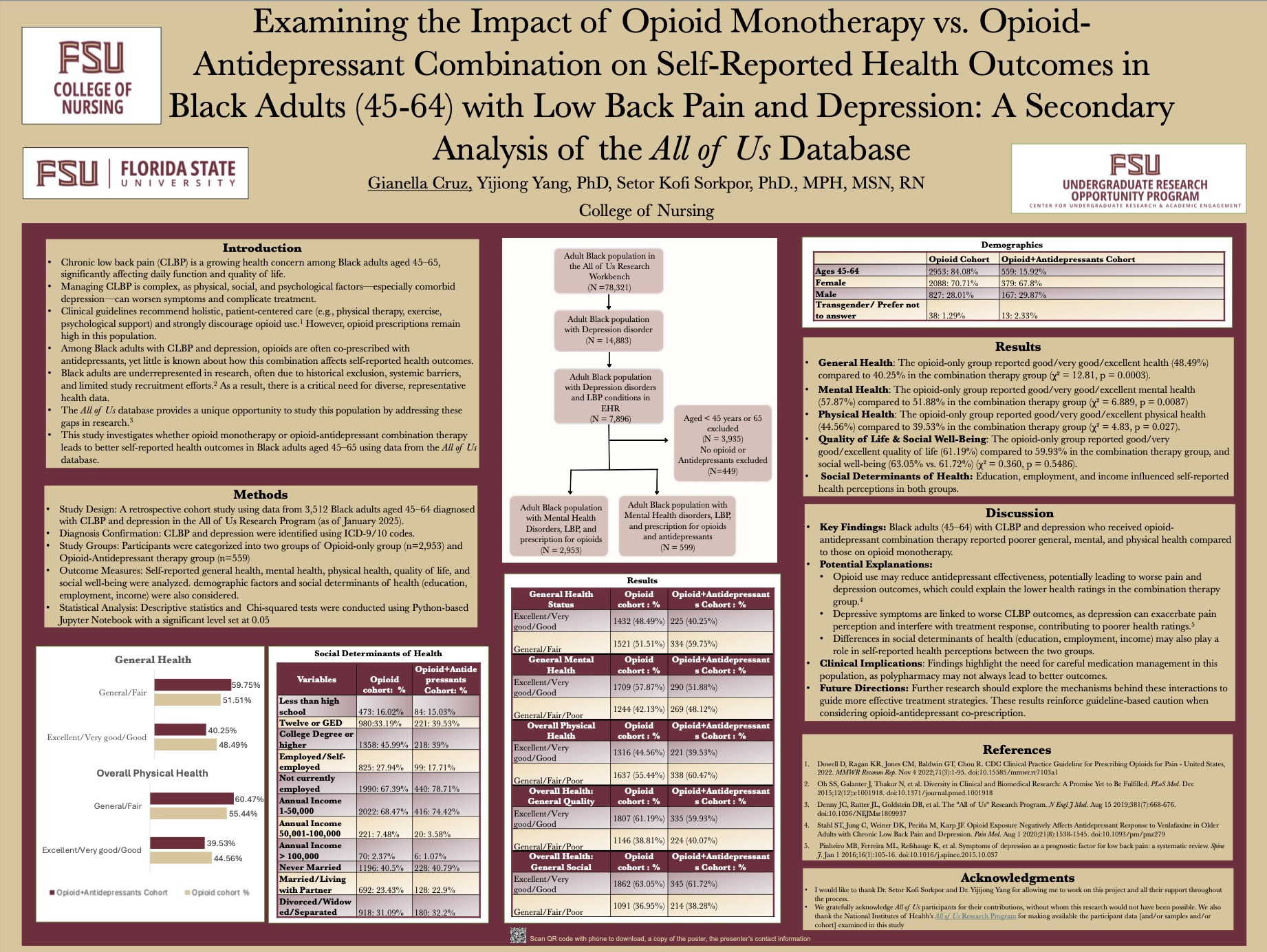Research Symposium
25th annual Undergraduate Research Symposium, April 1, 2025
Gianella Cruz Poster Session 3: 1:45 pm - 2:45 pm/ Poster #97

BIO
My name is Gianella Cruz, and I am a pre-nursing student from Miami, Florida. I aspire to get a master’s degree to become a Nurse Practitioner. I am passionate about health equity and interested in research that addresses the needs of under-researched and underserved populations.
Examining the Impact of Opioid Monotherapy vs. Opioid- Antidepressant Combination on Self-Reported Health Outcomes in Black Adults (45-64) with Low Back Pain and Depression: A Secondary Analysis of the All of Us Database
Authors: Gianella Cruz, Setor Kofi SorkporStudent Major: Pre-nursing
Mentor: Setor Kofi Sorkpor
Mentor's Department: College of Nursing Mentor's College: College of Nursing Co-Presenters:
Abstract
Black adults aged 45–64 experience a high burden of chronic low back pain (CLBP) and face disparities in pain management. While guidelines favor nonpharmacologic treatments, opioids remain widely used. In those with comorbid depression, opioids are often co-prescribed with antidepressants, raising concerns about increased risks such as polypharmacy, reduced treatment efficacy, and negative health outcomes. This study examines whether opioid monotherapy is associated with better self-reported health outcomes than combination therapy. This retrospective cohort study utilized data from 3,512 Black adults aged 45–64 diagnosed with CLBP and depression in the All of Us Research Program (January 2025). Diagnoses were confirmed using ICD-9/10 codes. Participants were divided into opioid-only (n=2,953) and opioid-antidepressant therapy (n=559) groups. Statistical analyses, including descriptive statistics, chi-square tests, and logistic regression models, were conducted using Python-based Jupyter Notebook, adjusting for pain severity, comorbidities, and sociodemographic factors. Preliminary findings suggest that opioid monotherapy is associated with higher self-reported health ratings than combination therapy (48% vs. 40% reporting good or better health). Participants in the combination therapy group reported higher levels of fatigue and drowsiness, which may contribute to poorer health perceptions. They also reported a higher frequency of medication side effects, including nausea and dizziness. These findings suggest that opioid-antidepressant co-prescription may be linked to poorer health outcomes in this population. While further research is needed, results support guideline-based caution regarding polypharmacy. Future studies should examine the mechanisms behind these associations to inform clinical decisions.
Keywords: chronic pain, nursing, opioids

